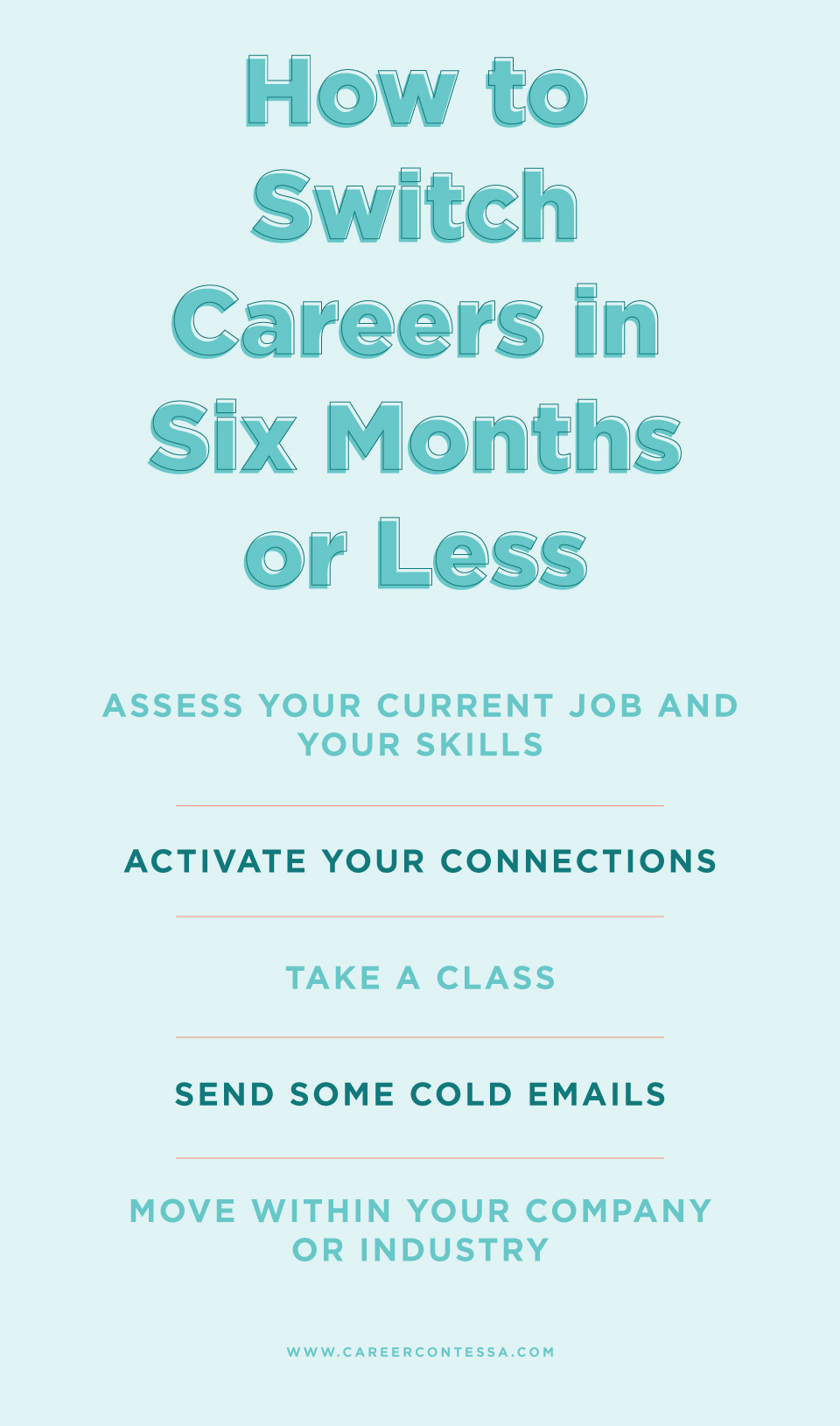“It’s never too late to try something new.”
While the popular adage is true, sometimes the time spend and money spend can get in the way of truly following a new path. With technology, making a career change (within reason) has never been easier. Using tools like
LinkedIn,
Udemy, and, yes even
YouTube, you can learn the skills of a trade and connect with the masters within it.
Assess your current job and your skills
Maybe you hate your current job. Maybe you're simply nonplussed with the day-to-day work and you want something more. Maybe you actually like the function of your job, but dislike your current company. Whatever it is, make sure to
identify the why of your desired career move before you take action.
From there, assess your best skills along with your passions. Perhaps you've been drafting press releases or doing ad-hoc social media work for your current company. Maybe you've done a little graphic work as needed outside of your otherwise administrative roles. Combine your interests and relative experience in order to determine your desired
career direction.
Activate your connections
So you want to be a graphic designer? Awesome! You know those
LinkedIn connections you made in college; the friend of a friend of a former coworker?
Rifle through these connections. You might be surprised what you find hiding in your own LinkedIn connections or Facebook friends. Speaking of friends, speak to them, too. More often than not, someone will know someone who is open to talking to you. Reach out to see if they'd be
willing to take an informational interview with you. While they might not have a job hot and ready, it's a perfect opportunity to
ask a few questions over a coffee or even a quick phone call.
Take a class
Unless you're looking to become an anesthesiologist or a trial attorney, you can likely build your skillset without applying to graduate school.
Even if you’re not looking to change your career (why are you reading this?) you
should take advantage of these free classes. Heck, we all should learn about
Probabilistic Graphical Models because, why not?
Send some cold emails
This is my personal favorite thing to do, so approach with wary pessimism if you must.
Once you have a clear idea of the position you want and type of company you’d like to work for, considering reaching out to the employees there. A personalized,
well-researched cold email can be the perfect way to garner a new relationship.
You don’t have to come in too hot, revealing that you went 80 weeks deep into a CEO’s Instagram, but you can express a knowledgeable, thoughtful sentence or two. In addition, lay out your interest in the company and inquire as to whether they will be hiring for *your role* in the near future. If you see a gap in the team roster, you might even suggest the need for *your role* and why.
Consider sending out a few
cold emails to your dream companies that might hold your dream future job. You can even reach out to employees
at your dream company using LinkedIn! At best, you will manifest a miraculous job opening in your field. At worst, you will receive no reply.
Move within your company or industry
If you love the company you are currently with, you might consider this option. Speak to HR or your manager about the moves you're thinking of making.
Before reaching out to HR or your manager, have a good case ready. If you're looking to move from Sales to Graphic Design, have a good plan in place. Does the graphic design department have an opening? Is there a particular project that you can participate in on a trial basis? Would you be willing to train your replacement? Is there a possibility of a hybrid role?
If your current company is not responsive to your ideas, then consider making the move within your industry. Having a working knowledge of the business landscape within your particular industry is key. When applying to this new position in a new company, make sure to explain your
career transition. Use your working knowledge of the industry as a tool to set you apart from the other candidate.
It’s never too late to make a career change. However, it is important to weigh your expectations when doing so. Typically, when making a complete change in your career, you will in effect “lose” some of your experience. This can translate to a lower salary than you're used to receiving. So before making any huge moves, make sure to
reevaluate your salary expectation.
Ultimately, we want you to feel fulfilled in your career. And if you know that it's time for a transition, we support you in that. These tips will help you to begin your pursuit of a new industry, position, or company—whatever you decide your next move is.












